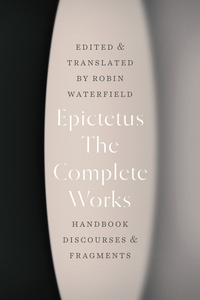Emily Wilson in the London Review of Books:
 The first-century Stoic philosopher and teacher Epictetus was an enslaved person who succeeded in getting an education and, eventually, his freedom. Images of freedom, slavery and self-belonging (oikoiesis) recur in his teaching. ‘A slave is always praying to be set free,’ he writes. He evokes the horrors of enslavement by describing the suffering of caged animals and birds that refuse to eat in captivity and starve to death, though he also occasionally repeats a conventional set of ideas about slavery, claiming, for example, that runaway slaves are ‘cowards’, and that none of them ever dies of hunger. Slavery powered the Roman Empire; in the first century ce, between 10 and 20 per cent of the population were enslaved at any one time. But Epictetus was not an abolitionist in a political sense. Like other ancient philosophers, he assumed that slavery was normal and would always exist. He never suggests that those who claimed to own their fellow human beings were committing a moral evil. His aim was to free others from the ‘tyrannic sway’ not of literal enslavers, but of the emotional disturbance caused by false belief.
The first-century Stoic philosopher and teacher Epictetus was an enslaved person who succeeded in getting an education and, eventually, his freedom. Images of freedom, slavery and self-belonging (oikoiesis) recur in his teaching. ‘A slave is always praying to be set free,’ he writes. He evokes the horrors of enslavement by describing the suffering of caged animals and birds that refuse to eat in captivity and starve to death, though he also occasionally repeats a conventional set of ideas about slavery, claiming, for example, that runaway slaves are ‘cowards’, and that none of them ever dies of hunger. Slavery powered the Roman Empire; in the first century ce, between 10 and 20 per cent of the population were enslaved at any one time. But Epictetus was not an abolitionist in a political sense. Like other ancient philosophers, he assumed that slavery was normal and would always exist. He never suggests that those who claimed to own their fellow human beings were committing a moral evil. His aim was to free others from the ‘tyrannic sway’ not of literal enslavers, but of the emotional disturbance caused by false belief.
More here.
